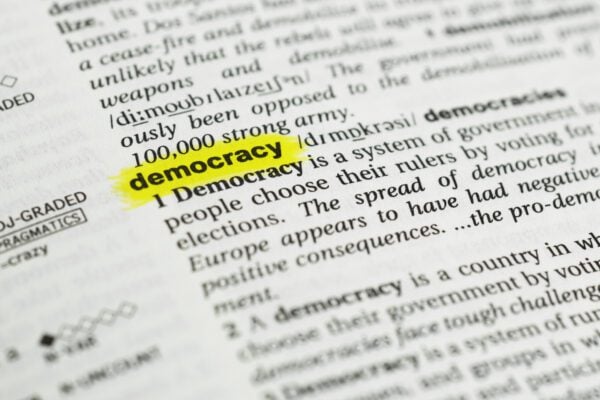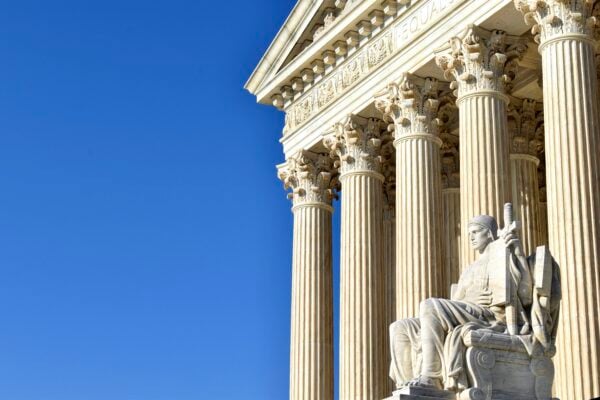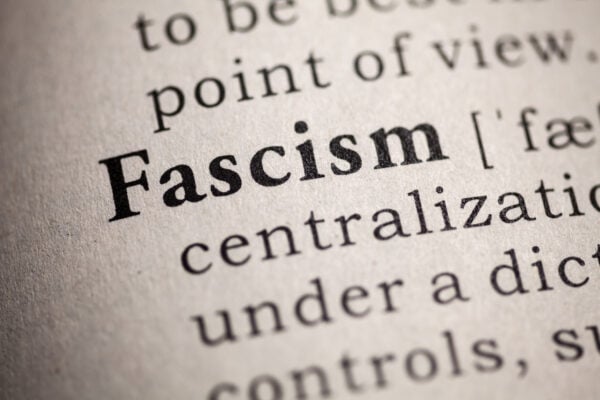What is a democracy anyway?
In the current political climate, the media and politicians throw around many terms. Words like “oligarchy” and “fascism” appear everywhere in the news, but they are rarely defined.
To help make sense of it all, and to get to the facts among all the opinions, the Recorder has compiled definitions and examples of some of these words we hear daily.

Democracy
A democracy is a system of government ruled by the people.
The ancient Greeks are credited with creating the first democracy in Athens in the 5th century B.C. The word democracy comes from the Greek word “demokratia,” with “demos” meaning “people” and “kratos” meaning rule, according to National Geographic.
Upon signing the constitution in 1814, Norway broke away from monarchy and adopted democracy, establishing separation of powers and liberal voting rights, according to an article from the University of Bergen.
Republic
A republic is a form of government in which power resides with elected individuals representing the citizen body, rather than a monarch, and where officials are accountable to the people and bound by law.
The U.S. has operated as a republic since its founding in 1776, as outlined in the U.S. Constitution, where elected representatives, including the president and Congress, make decisions on behalf of the citizens.
From 1949 to 1999, the Federal Republic of Germany was established as a republic following World War II. The German Federal Archive highlights that the government structure was based on democratic elections and a constitution that limited the power of any single individual or officeholder.

Oligarchy
An oligarchy is a government that is controlled by a small and elite group of individuals, often from the same social, economic or political class, rather than by the broader population.
From 1980 to 1998, Pakistan exhibited characteristics of an oligarchy, according to the Journal of South Asian and Middle Eastern Studies, as military leaders and a few powerful political families dominated governance, limiting broader democratic participation.
Modern-day Russia is often described as an oligarchy due to the concentration of power among wealthy business elites closely tied to President Vladimir Putin. According to a 2020 report from the Carnegie Moscow Center, a small group of oligarchs gained significant political influence following the privatization of state assets in the 1990s.
Kleptocracy
A kleptocracy is a form of government ruled by people who use their power to steal their country’s resources and seek personal gain at the expense of those they govern. Kleptocracy is a form of government corruption.
Zaire — now known as the Democratic Republic of the Congo — struggled with kleptocracy from 1965 to 1997 under President Mobutu Sese Seku, according to Britannica.
Russia is largely considered to be a kleptocracy under the rule of President Vladimir Putin, who has held office since 1999, according to an article in Chatham House.

Fascism
Fascism is an authoritarian, ultranationalist ideology characterized by dictatorial power, forcible suppression of opposition and strict regimentation of society and the economy, often rooted in a mythologized national rebirth and the scapegoating of marginalized groups.
Fascism thrives on centralized autocracy, militarism and the rejection of liberal democracy, frequently employing propaganda and mass mobilization to cultivate a cult of personality around its leader.
A defining historical example is Benito Mussolini’s regime in Italy (1922–1943), where his National Fascist Party abolished political freedoms, crushed dissent and promoted aggressive expansionism while glorifying a romanticized vision of Roman imperial grandeur.
Socialism
Socialism is a political and economic system advocating collective or state ownership of the means of production, distribution and exchange to reduce inequality and ensure equitable wealth distribution.
Socialism emphasizes social welfare, workers’ rights and public services, often opposing unregulated capitalism in favor of centralized planning or cooperative models.
A real-world example is Sweden’s democratic socialist policies, which combine a market economy with extensive social safety nets, universal health care and free higher education. Unlike authoritarian socialist states, Sweden maintains a multi-party democracy.
Want to learn more? Tell us what else you would like the Recorder to explain at newsroom@indyrecorder.com.




